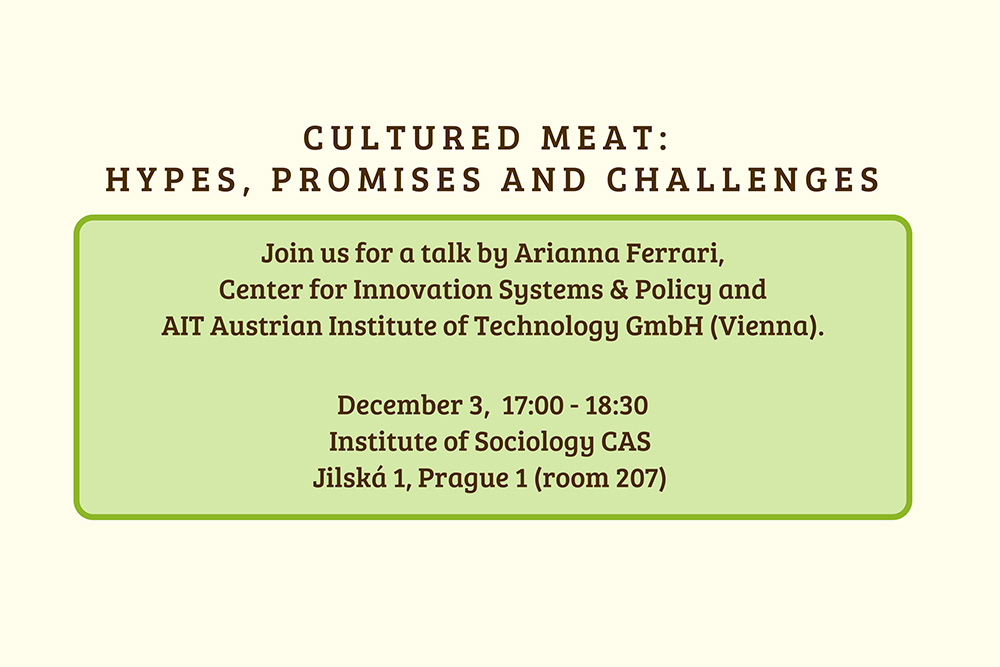Cultured meat is presented as a technology that promises to save the planet, to be sustainable, to protect human health, to eliminate animal suffering and to help feed the planet and fight world hunger.

The hype that characterises the promises of cultured meat is not just a matter of the early days: it continues to this day, despite the fact that scientific publications on the environmental and economic aspects of this innovation have long since revealed many difficulties that have yet to be resolved. Cultured meat continues to be presented as a 'win-win' innovation, i.e. one that only brings benefits.
The positive normative charge of this emerging technology, which has then been translated into actions influencing innovation policy through messages designed to mobilise investors, has aroused the suspicion of those (parties, associations, governments, think tanks) who want to defend traditional agriculture and not change it, creating a dichotomy between innovation and tradition that oversimplifies very complex issues. In fact, there are European countries and states overseas that have banned cultured meat.
This dichotomy remains superficial: It does not attempt to question in depth both the complex systems of food production and the need to reform food in a sustainable sense, and it obscures what should be one of the main focuses of the issue, namely the impact on non-human animals, as cultured meat seeks to transform the way we consume animal bodies.
My talk will explore the hypes, promises and current challenges of cultured meat, focusing on the material consequences for animal bodies and the need to think urgently about the future of animals as an essential part of shaping the policies around this emerging technology.
The event is organised with the financial support of the AV21 Strategy Research Programme "Resilient Society for the 21st Century".
Attached Files
- laburger.pdf (pdf, 63.18 KB)